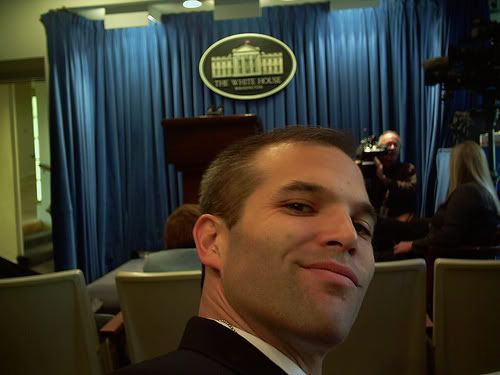
Matt Taibbi has picked up the torch of journalism so predictably dropped by Politico.
First of all, I want to congratulate Michael Hastings for the amazing job he did on the McChrystal piece. Not only was it a coup for our magazine, but it's a reminder of what journalists are supposed to be doing. For quite a long time political journalism, particularly in Washington, has been reduced to an access-trading game, where reporters are rewarded for favorable coverage of those in the know with more time and availability.
This symbiotic dynamic affects not just individual reporters but whole publications and news channels; it's a huge reason why reporters have in general resisted challenging political authorities. Nobody wants to be the guy who gets not only himself but his whole paper shut out of the access game. Since many recent politicians have made good on this implied threat (George Bush's shut-out of the Washington Post's White House reporters is a classic example), what we get is coverage that across the board fails to ask hard questions and in general treats leaders with a reverence they don't always deserve.
But his bête noire David Brooks reflexively bristles at the notion that reporters and sources shouldn't be chums.
In the column Brooks talks about how the media landscape has changed over the past 50 years, about the gotcha journalism culture in which a public official, sadly, no longer feels safe in having a beer with a reporter and bragging about his mistresses and his Swiss bank accounts. Once upon a time, Brooks says, pols and reporters did a lot of "kvetching" together, gossiping about events in and around the Hill – and most of that "kvetching" stayed out of print:
Those of us in the press corps have to figure out how to treat this torrent of private kvetching. During World War II and the years just after, a culture of reticence prevailed. The basic view was that human beings are sinful, flawed and fallen. What mattered most was whether people could overcome their flaws and do their duty as soldiers, politicians and public servants. Reporters suppressed private information and reported mostly — and maybe too gently — on public duties.
Ah, the halcyon days when reporters could be trusted to protect the elite...
But, as Taibbi also notes, CBS news's Afghanistan "reporter" Lara Logan may be even more callow than Brooks.
Lara Logan, come on down! You're the next guest on Hysterical Backstabbing Jealous Hackfest 2010!
I thought I'd seen everything when I read David Brooks saying out loud in a New York Times column that reporters should sit on damaging comments to save their sources from their own idiocy. But now we get CBS News Chief Foreign Correspondent Lara Logan slamming our own Michael Hastings on CNN's "Reliable Sources" program, agreeing that the Rolling Stone reporter violated an "unspoken agreement" that journalists are not supposed to "embarrass [the troops] by reporting insults and banter."








